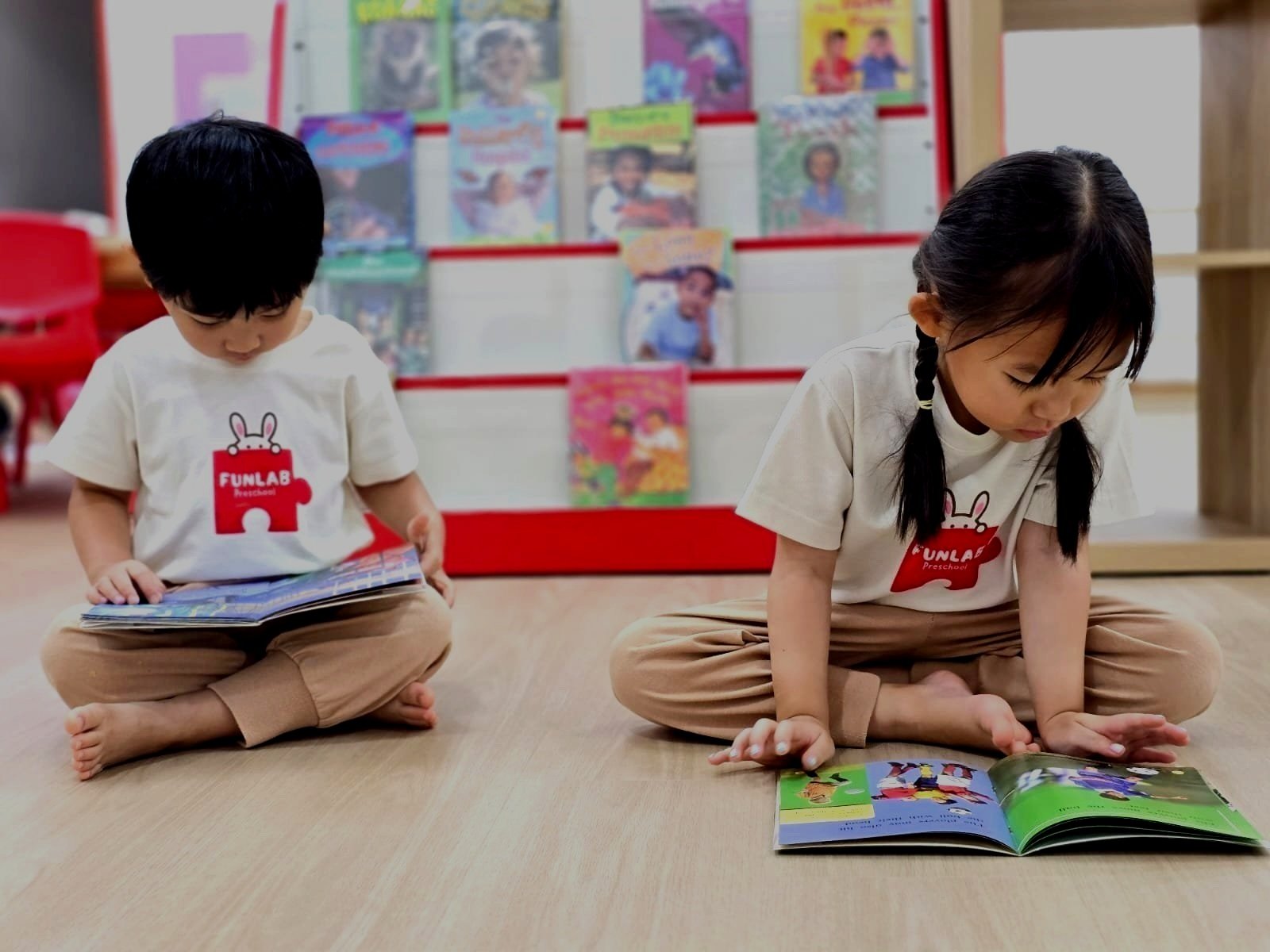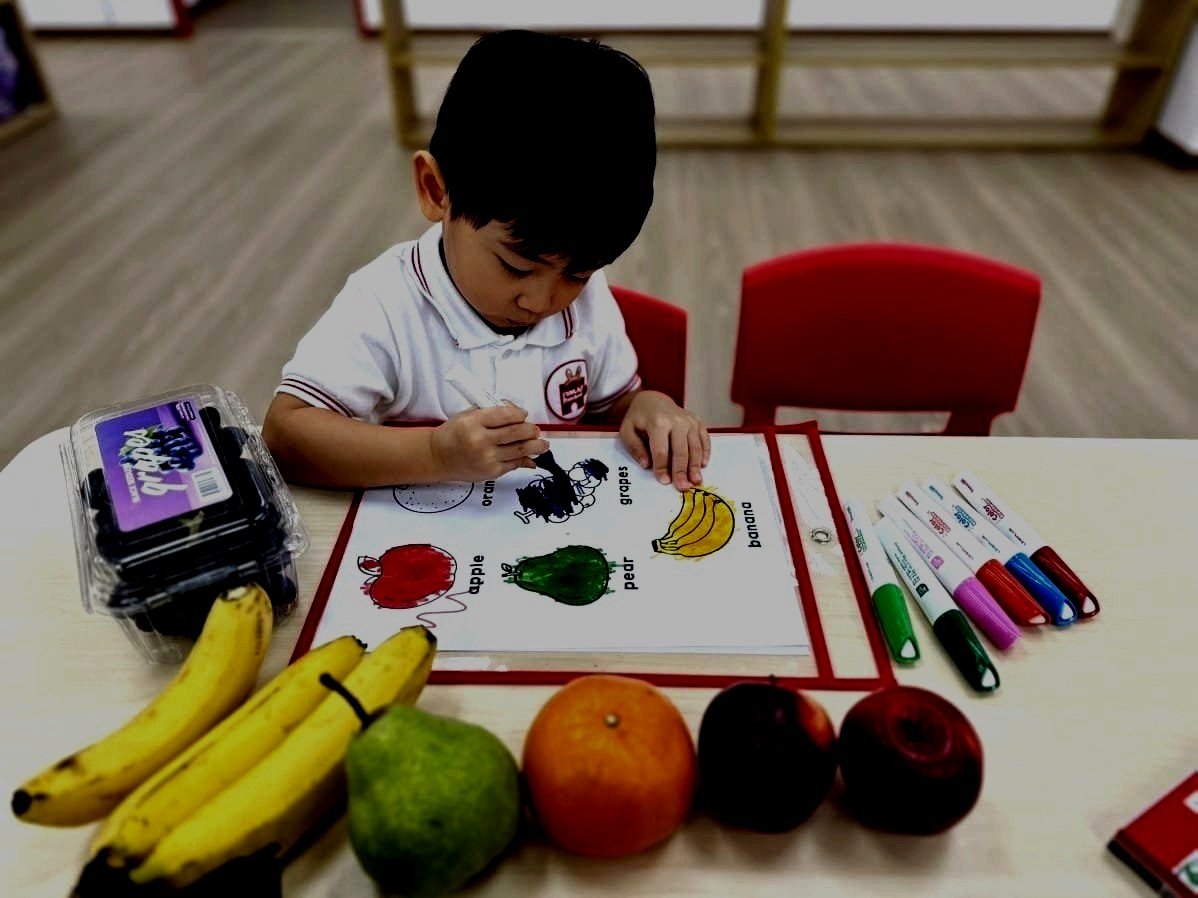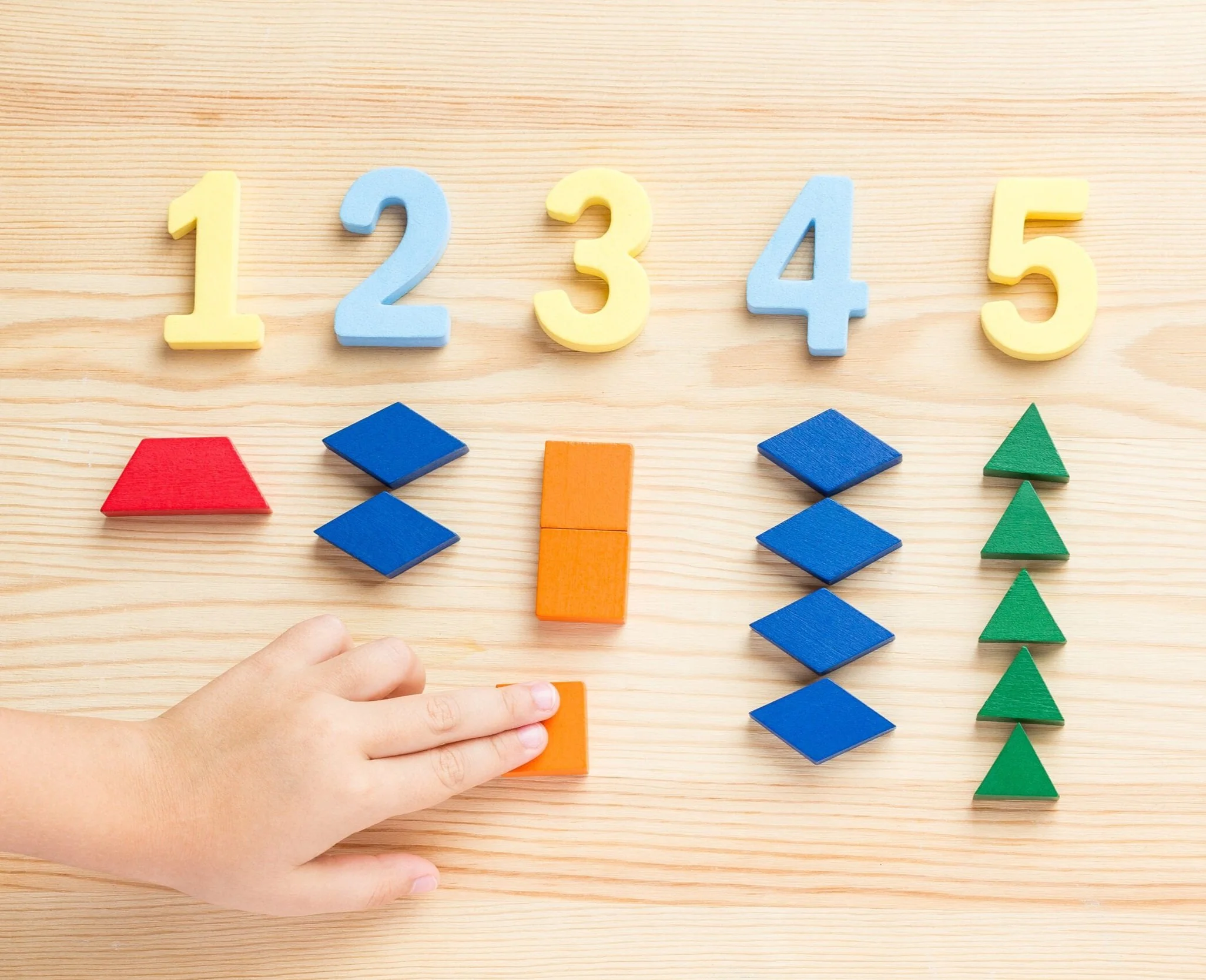
Our Curriculum
We adopt a thematic overview for our curriculum, and lessons are conducted using our unique play-based approach, drawing inspiration from Montessori and Reggio-Emilia.
A thematic overview enables integrated learning and breadth of knowledge, and learning through play gets children excited and helps them connect the dots and absorb concepts better.
Through our smaller group teaching, your children will receive more individualised attention and are freer to express themselves. As they move up the levels, we also encourage more independence and self-directed learning to help hone their problem-solving skills.
The range of programmes we offer is tailored to ensure a holistic development, and our blended approach aims to foster a lifelong love of learning in every child, and build a strong foundation for future success.

Our Programmes
-

Bilingual Language and Literacy
To equip children with foundational reading and writing skills and develop a love for Chinese and English
-

Numeracy
To introduce children to numbers and basic math concepts and encourage logical thinking
-

Science Exploration
To expose children to the world of science through fun experiments and spark a sense of curiosity
-

Values Building
To cultivate positive values and build enduring and powerful habits in children
-

Nature Involvement
To connect children with nature and help them develop a love for the natural world around them
-

Music and Arts Appreciation
To foster creativity and an appreciation for music and art while exploring famous works and figures
-

Motor Skills Development
To develop gross and fine motor skills of children and help them discover their physical abilities
-

Situational Awareness
To hone situational awareness in children and equip them with the necessary skills to react appropriately in different scenarios
-

Thinking Approaches
To introduce children to different thinking approaches and help build their problem-solving skills
-

Memory Training
To strengthen the working memory capacity in children and improve their cognitive functions

